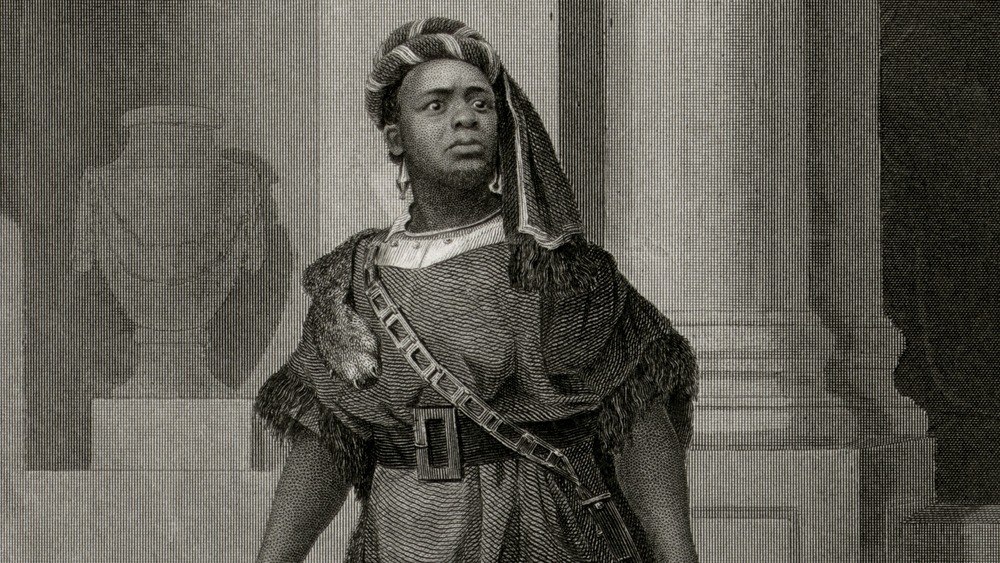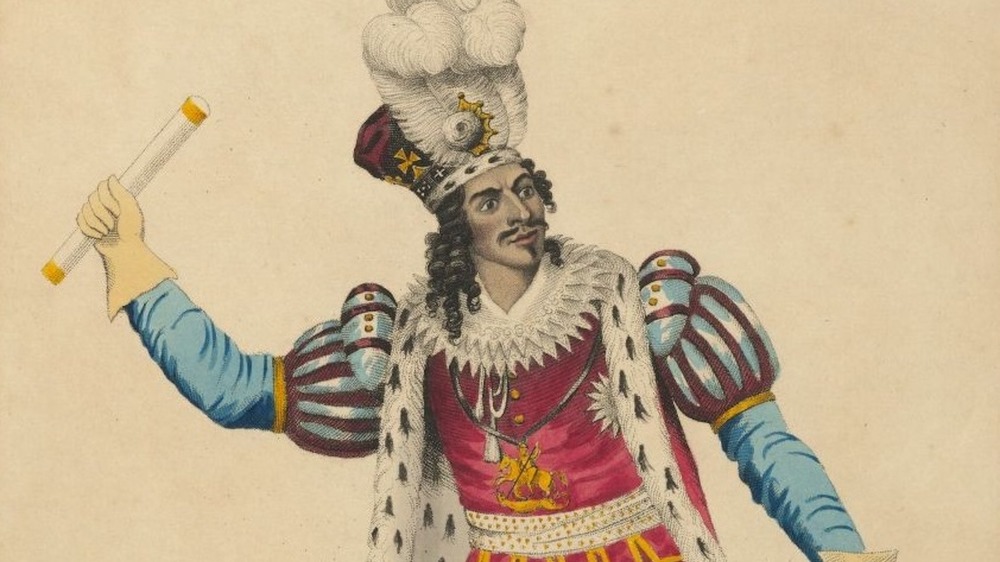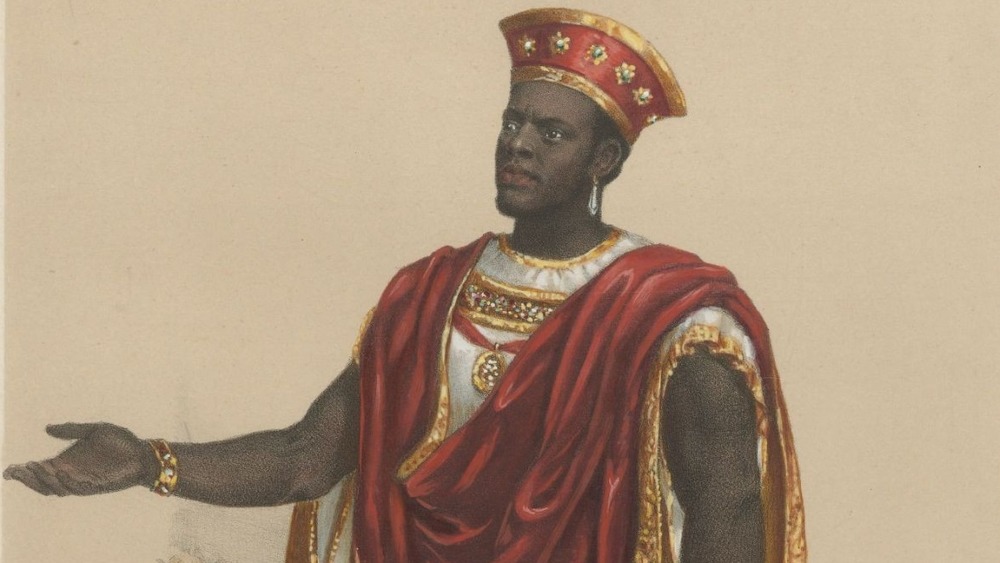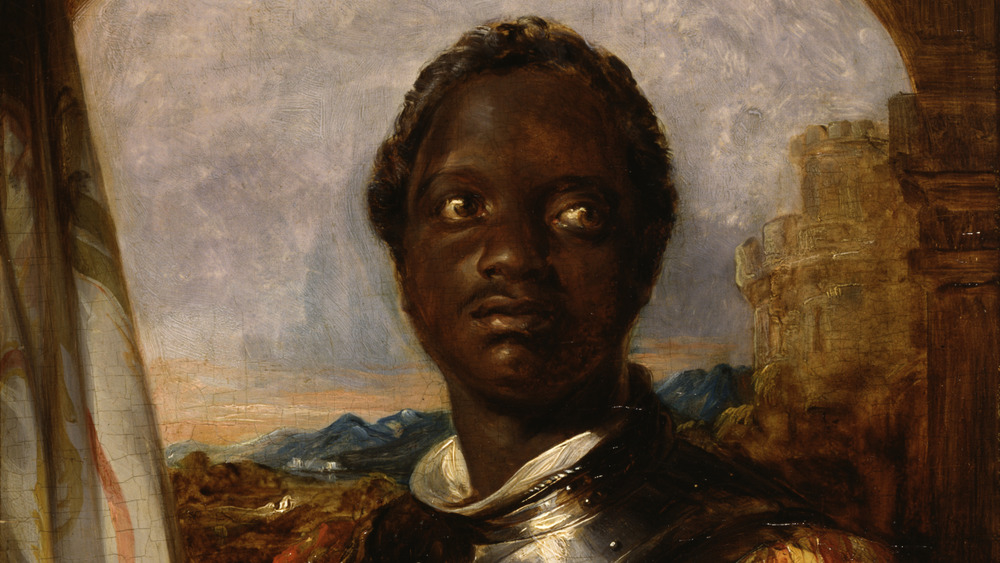The Untold Story Of The African Grove Theatre
Founded by a free Black man in New York City six years before the state abolished slavery, the African Grove Theatre put on the first all-Black productions of Shakespeare in the United States of America, reports the Folger Shakespeare Library. Performing for a mostly Black audience, says Black America Web, the African Company put on performances ranging from Othello and Don Juan to original works. Baruch College of the City University of New York states that performances were attended by both free and enslaved Black people as well as white middle-class people.
Unfortunately, due to harassment from police and white neighbors, the theater ended up folding within a few years. But while it was operational, the African Grove Theatre was an incredibly important place for the Black community in New York City. And as Mental Floss tells us, the theater also played a hand in nurturing the early career of Ira Aldridge, who after making his debut as Othello in London in 1825, writes The New Yorker, went on to become one of the most significant Shakespearean actors in history. This is the untold story of the African Grove Theatre.
Who was William Alexander Brown?
Born in the late 1700s in the West Indies, William Henry Brown, also known as William Alexander Brown, was a free Black man who settled in New York City around 1816, says the Black Past website. Ann online lecture series about African America Performance tells us that after working as a steward on a Liverpool liner, Brown bought a house in lower Manhattan on Thomas Street (although some accounts say it was Thompson Street).
By 1820, Brown had opened up his backyard in the establishment known as the African Grove. According to Folger Shakespeare Library, Brown served ice cream and drinks to patrons in addition to offering musical entertainment.
James Hewlett, a frequent guest of the African Grove and a theater enthusiast, inspired Brown to incorporate theatrical works into the Grove's repertoire and by 1821, Brown had created the African Theatre. Hiring Black performers, the African Company put on "possibly the first professional African-American theatre production ever." A former steward himself, Hewlett would go on to become the first African-American man to play Othello, says the African American Registry.
Founded six years before enslavement was completely abolished in the state of New York, says West View News, the African Grove Theatre became an important place of artistic expression for free Black people in New York City. Ira Aldridge also got his start in the African Company, says Black Past, and later went on to become a successful Shakespearean actor in Europe.
Performing Shakespeare and original works
The very first play performed by the African Company was Richard III, a Shakespeare play. While Richard III was likely picked because it was one of the most-often performed plays at the time, the choice of Shakespeare was also deliberate for two reasons, according to Folger Shakespeare Library. A performance of Shakespeare would be a performance of a "culturally authorized text," while the story of Richard III itself, "attempting to achieve things through sort of dextrous maneuverings of people," mirrored the negotiations that enslaved people had to navigate for their freedom.
According to Black Past, the first performance occurred on September 21st, 1821, and soon the African Company's repertoire expanded to include pantomime, farce, and original works. Written by Brown himself and performed in 1823, The Drama of King Shotaway is considered to be the first play written by an African-American man. Based on the 1796 Second Carib War in St. Vincent, the historical drama cast both Hewlett and Aldridge, the latter of whom was just a teenager at the time. Tragically, as the World Heritage Encyclopedia tells us (posted at Project Gutenberg), there are no known existing copies of The Drama of King Shotaway.
Later in his career, Hewlett went on to tour the country "impersonating the world's greatest white actors in their most famous roles."
Police raids and eventual closing
Unfortunately, the African Grove Theatre repeatedly experienced police raids, partly due to the "rowdiness" of white audience members. According to Dartmouth College, white people initially attended performances out of curiosity, finding it "amusing that a company of Black actors was attempting to do Shakespeare, [but] they later became very hostile."
In an attempt to prevent hostilities, the African Grove Theatre created a partitioned area in the back of the theater for white people, but they continued to "create disturbances" that eventually led to the theater's closure, says the African American Review. "White middle class neighbors" would also repeatedly complain.
With constant police raids and pressure to stop performances, the African Grove Theatre became mobile, moving to various locations around Mercer Street. But when they moved next to Stephen Price's Park Theatre and staged a performance of Richard III at the same time as the Park Theatre, Price hired white people to start a riot and got the police to shut down African Grove's performances. The actors were jailed overnight and released on the condition that they "promise never to perform Shakespeare again."
It's unclear exactly what happened to African Grove Theatre and why it closed. Some sources claim that the theater struggled financially and Brown's bankruptcy led to the theater's closure, despite the fact that the plays were often successful. But unfortunately, there's no record of the African Grove Theatre after 1823, and three years later, the building itself burned in a "mysterious fire."



